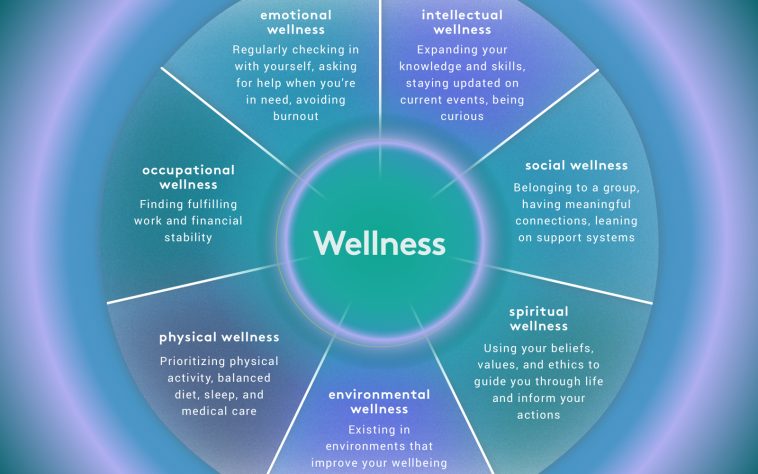The field of psychology offers an extensive array of career paths that contribute significantly to health and lifestyle. Moving beyond the traditional roles typically associated with psychology, these diverse career options extend their impact into various facets of health and everyday living. With a focus on understanding and improving mental and physical well-being, psychology professionals play a crucial role in enhancing quality of life across different populations.
Exploring the different careers in psychology unveils how these roles intersect with health and lifestyle. Whether it’s through clinical practice, research, health psychology, or more niche areas, each career path offers unique opportunities to make a meaningful difference. Psychology professionals are not just confined to counseling rooms; they are increasingly found in communities, corporations, schools, and wellness centers, contributing their expertise to foster healthier, happier societies.
Clinical and Counseling Psychology
Clinical and counseling psychologists play a crucial role in the realm of mental health, dedicated to improving the well-being of individuals facing psychological challenges. Their work is central to diagnosing, treating, and managing mental health disorders, significantly enhancing the quality of life of their patients.
Key aspects of clinical and counseling psychology include:
- Addressing Mental Health Issues: These psychologists provide therapy and support for a range of psychological challenges, from anxiety and depression to more complex mental health conditions.
- Diverse Work Environments: They practice in various settings like private clinics, hospitals, and mental health centers, contributing significantly to the healthcare system.
In addition to traditional clinical roles, counseling psychologists also occupy supportive positions in various community settings:
- Guidance in Educational Institutions: Offering support to students, addressing academic and personal challenges, and fostering a supportive learning environment.
- Community Center Involvement: Working in community centers to provide accessible mental health services and support to diverse populations.
- Workplace Mental Health: Offering counseling and mental wellness programs in corporate settings, promoting a healthy work-life balance and addressing work-related stress.
Health Psychology and Wellness
Health psychology is a specialized field that emphasizes the interconnection between psychological processes and physical health. Health psychologists are experts in understanding how individuals’ thoughts, behaviors, and emotions impact their overall health and well-being. They often collaborate with medical professionals to develop comprehensive care plans, focusing not just on treatment but also on prevention and lifestyle modification. Their role involves promoting healthy behaviors and effective management of chronic diseases, ensuring that patients receive holistic care that addresses both their physical and mental health needs. This approach is instrumental in improving patient outcomes and enhancing the quality of healthcare services.
In addition to direct patient care, health psychologists are actively involved in public health initiatives and wellness programs. They play a pivotal role in advocating for lifestyle changes that contribute to better health outcomes on a broader scale. Through research, public education, and community health programs, they provide valuable insights on maintaining healthy lifestyles, managing stress, and preventing illnesses. Their work in public health campaigns is essential in raising awareness about the importance of a balanced approach to health, one that encompasses both physical and psychological factors. In doing so, they contribute significantly to the promotion of healthier communities and the advancement of public health objectives.
Sports Psychology and Performance Enhancement
Sports psychology is a dynamic field that merges psychological expertise with the world of sports and physical fitness. Sports psychologists specialize in enhancing athletic performance by focusing on the mental aspects of sports, making significant contributions to both individual athletes and teams. Their work is vital in optimizing performance and maintaining the mental well-being of athletes.
Key roles and contributions of sports psychologists include:
- Enhancing Focus and Motivation: Working directly with athletes to improve their mental focus, motivation, and overall psychological resilience.
- Addressing Performance Anxiety: Helping athletes overcome anxiety and stress related to performance, developing strategies to boost confidence and mental toughness.
- Team Dynamics and Coaching: Aiding sports teams in enhancing team dynamics, communication, and cohesion, contributing to improved group performance.
- Optimizing Mental Health in Athletics: Ensuring athletes maintain optimal mental health, which is crucial for peak performance.
In addition to competitive sports, sports psychologists also play a significant role in broader aspects of physical fitness and recreation:
- Fitness Centers and Recreational Sports Programs: Applying psychological principles to enhance the experience and benefits of physical fitness and recreational sports activities.
- Promoting Mental Wellness through Physical Activity: Working in schools and community programs to advocate for the benefits of physical activity on mental well-being.
Research and Academic Psychology
In the field of research and academic psychology, psychologists play a pivotal role in deepening our understanding of human behavior and mental processes. Their work involves rigorous studies and analyses that significantly contribute to the psychological knowledge base. These professionals, often associated with universities and research institutions, not only engage in innovative research but also educate the next generation of psychologists. This dual role of research and teaching is crucial for advancing the field and integrating new theories and findings into the psychological curriculum.
Academic psychologists also have a significant impact on shaping health and lifestyle policies and practices. Through their research, they provide evidence-based insights that guide public health strategies, educational policies, and workplace wellness programs. Their expertise is instrumental in developing interventions and initiatives that effectively address various psychological and social issues, thus enhancing overall community health and well-being.
Psychology: A Diverse Journey in Enhancing Lives
The diverse careers in psychology paint a picture of a field that is both dynamic and integral to various aspects of health and lifestyle. These career paths highlight the profound impact of psychological expertise across multiple sectors, including healthcare, sports, academia, and public health. As global awareness of the importance of mental well-being grows, so does the demand for skilled psychology professionals in these areas. For those embarking on a career in psychology, the future holds a promise of a fulfilling and vibrant journey. It’s a path laden with opportunities not only to delve into the complexities of human behavior but also to contribute significantly to enhancing health, fostering personal growth, and enriching lives in a multitude of impactful ways.




